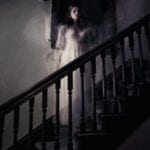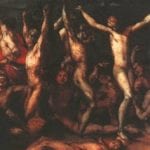 Weird Stuff
Weird Stuff  Weird Stuff
Weird Stuff  Mysteries
Mysteries 10 Tragic Disappearances and Deaths in Joshua Tree National Park
 History
History 10 Ways Childhood Really Sucked in the Old West
 Music
Music 10 Name Origins of Famous Bands from the 1990s
 Religion
Religion 10 Biggest Turnarounds by the Catholic Church
 Weird Stuff
Weird Stuff 10 Unbelievable Times Laws Had Unintended Consequences
 Humans
Humans Ten Historic Women Who Deserve Way More Credit Than They Got
 Movies and TV
Movies and TV 10 Films That Spawned Major Lawsuits
 History
History Ten Times Towns Were Wiped Off the Face of the Earth
 Creepy
Creepy 10 of the Most Disturbingly Haunted Public Houses in the UK
 Weird Stuff
Weird Stuff 10 Niche Subcultures That Are More Popular Than You Might Think
 Mysteries
Mysteries 10 Tragic Disappearances and Deaths in Joshua Tree National Park
 History
History 10 Ways Childhood Really Sucked in the Old West
Who's Behind Listverse?

Jamie Frater
Head Editor
Jamie founded Listverse due to an insatiable desire to share fascinating, obscure, and bizarre facts. He has been a guest speaker on numerous national radio and television stations and is a five time published author.
More About Us Music
Music 10 Name Origins of Famous Bands from the 1990s
 Religion
Religion 10 Biggest Turnarounds by the Catholic Church
 Weird Stuff
Weird Stuff 10 Unbelievable Times Laws Had Unintended Consequences
 Humans
Humans Ten Historic Women Who Deserve Way More Credit Than They Got
 Movies and TV
Movies and TV 10 Films That Spawned Major Lawsuits
 History
History Ten Times Towns Were Wiped Off the Face of the Earth
 Creepy
Creepy 10 of the Most Disturbingly Haunted Public Houses in the UK
10 Terrifying Places Haunted By The Ghosts Of Brutal Violence
We’re all going to die. It’s estimated that about 150,000 people die around the world every day. Tragedy comes in all shapes and forms, none necessarily less than any other, but we tend to lend a collectively sympathetic ear to the victims of violence. These are the people cut short in their prime, severed from humanity with a quick, heart-wrenching jerk instead of a gradual progression.
But what if you aren’t ready to go? Can you grasp a single filament, hold on, leave some fragmented piece of yourself to haunt the land of the living? Do some deaths echo through eternity? The belief in ghosts is one of humanity’s oldest guilty pleasures, and for good reason—all it takes is one night in a darkened room where whispers fill the shadows and every windblown sigh could be the approaching rake of bloodstained fingernails to make a believer out of the most hard-boiled skeptic.
10Dead Children’s Playground
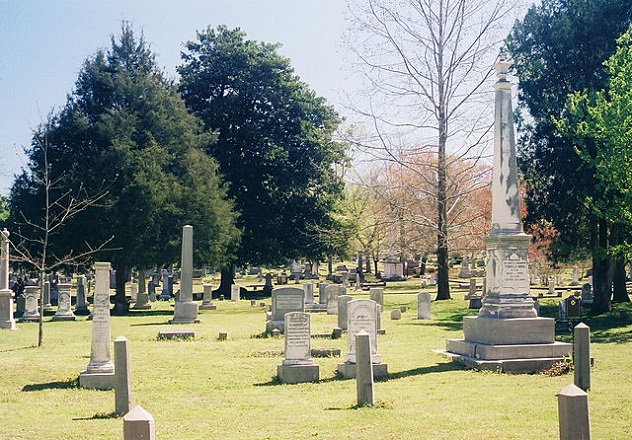
Maple Hill Cemetery (pictured above) is expansive and well maintained, a true monument to the countless lives interred there. As the oldest cemetery in Huntsville, Alabama, it’s the favorite resting place of the Yellowhammer State’s well-to-do, including five Alabama governors and five US senators. During the day, it’s sunny and cheerful, if a tad somber, but when twilight creeps in and the last of the day’s warmth seeps from the sodden ground, the souls of dead children come out to play.
Nestled on the edge of the sprawling cemetery is a small playground, and when the clock strikes 10 on a dead-calm night, the rusty swings creak to life, slides groan under unseen weight, and unearthly giggles sound out over the still cemetery grounds. There are two backstories for the aptly named Dead Children’s Playground: One states that the souls of children buried in Maple Hill Cemetery are frolicking in the playground. The other is, well, a little more sinister.
Legend has it that Alabama’s Madison County went through a rash of child abductions in the early ’60s. The children were later found discarded in the playground, but the perp was never caught. Nobody’s ever claimed to have been attacked by the apparitions, although visitors often leave with stories of ephemeral lights floating around the playground—the spirits of the ghost kids.
9Black Hag’s Cell
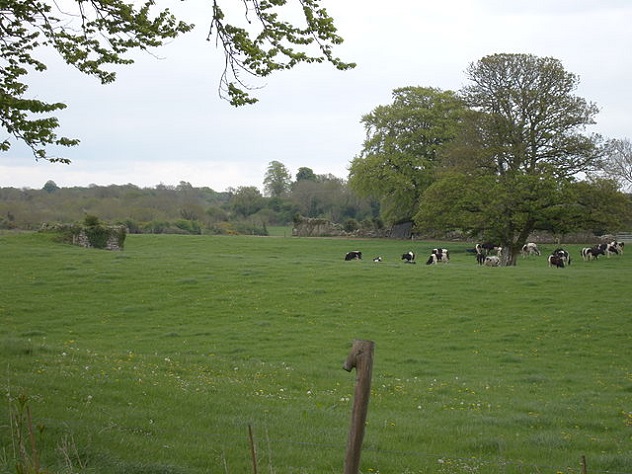
In the land of leprechauns and divine killer canines, ghosts are mellow fare, but Ireland’s southern valleys hide a real screamer. It’s said that Old Abbey, now just a mess of crumbling ruins (seen at a distance in the photo above) in a secluded hollow in Limerick County, is haunted by the ghost of a satanic nun who was buried alive. The old sacristy was given the nickname “Black Hag’s Cell” by locals because it was there that she was said to have performed her satanic rituals. And at night, her hair-raising screams echo over the hills.
As for the dark nun’s death, there are varying accounts. One claims that she was found in a chair outside the nunnery, stone-dead and face contorted in horror. It’s said that the Devil finally came to collect her soul but left her tormented spirit to haunt the grounds.
The other story is much darker: During a local skirmish between rival houses sometime in the 16th century, the nun was wounded by an arrow. Believing her to be dead, the Earl of Desmond buried her immediately. After terrified farmers reported hearing the nun’s muffled screams, the grave was exhumed, but it was too late. She’d rubbed her fingertips bloody trying to scratch her way out of the coffin.
Aside from the various legends, Old Abbey (officially St. Katherine’s Abbey) is mentioned in a historical context only in medieval tax records, but the general consensus is that it was built sometime at the end of the 13th century and was dissolved in the 1500s. As for the tales, they most likely stemmed from propaganda promoted by King Henry VIII. But if you happen to be in the area at dusk, keep an ear out for the dying woman’s screams of agony. They say she likes to creep up from behind you.
8Hampton Lillibridge House
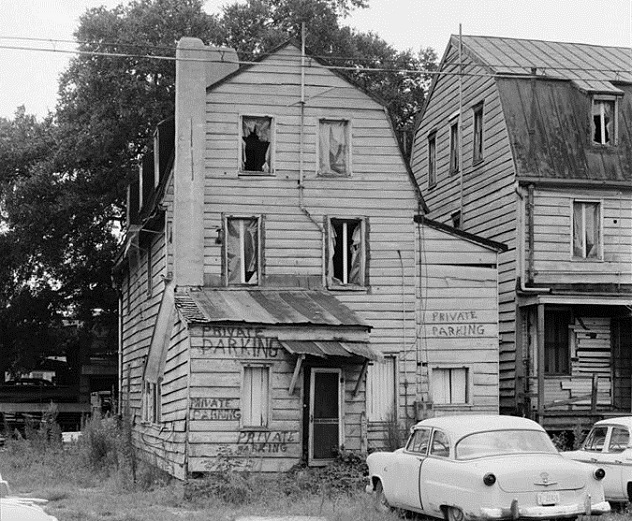
Take a stroll down East Saint Julian Street in Savannah, Georgia, and you’ll likely pass by the most haunted house in Savannah without a second glance. (The photo above is of the house many years ago, but it has since been renovated.) On the outside, the Hampton Lillibridge house is softly charming, a well-maintained relic of 18th-century America complete with a quaint little widow’s walk perched on the roof. But its calm exterior belies a savage past.
A sailor swinging from a makeshift noose in a third-story bedroom. The dying gasps of an entire family poisoned by their slaves. An ancient crypt below the foundation, accidentally discovered and then hastily sealed by terrified workmen. Rumors of the house’s grisly past are no doubt embellished by the many ghost tour companies that pepper Savannah, but visitors today still claim to feel an unearthly chill when they cross the threshold.
One of the creepiest stories from the Hampton Lillibridge house involves the past owner, a man named Jim Williams. Williams and several friends were in the house when they heard noises coming from upstairs. The house was still being renovated at the time, and the noises were coming from a room with an open chimney shaft on the third floor. When Williams’s friend walked into the room, he felt an invisible force grip his body and drag him toward the open shaft. Only by dropping to the floor did he prevent himself from being flung to his death.
7The House Of Death
Just about everyone agrees that there’s something sinister living at 14 West 10th Street in Greenwich Village, New York City. Exactly what it is, though, is up for debate. For over a century, the house has allegedly been the site of a string of macabre events, starting with rumors of a violent murder-suicide at the turn of the 20th century.
According to the plaque in front of the house, the old brownstone was once the residence of Mark Twain, and more than a few people have claimed to see the author’s ghostly visage pondering the dark comedy of life—or death—near the staircase. But a building isn’t dubbed the “house of death” for something as benign as a kindly old wordsmith, ghost or not.
The really terrifying incidents supposedly happened when actress and poet Jan Bryant Bartell occupied the house in the ’60s. Within weeks, she began experiencing events straight out of Amityville—an icy hand brushing the back of her neck, footsteps following her around the empty house, the smell of things dying. One of her dogs would spend hours growling and bristling at an empty chair. Another dog died. Allegedly, the house’s tenants were dropping like flies. Suicides, accidents, and murders claimed lives like a virulent strain of the plague. The events shook Bartell so much that she called in a psychic medium, but that only made things worse.
On the very first session, the medium went into a deathlike trance and spoke of bodies buried beneath the floorboards. There was a young girl under the house, she said, and the body of an aborted child. Her eyes shot open and she declared that she was the spirit of a Civil War–era woman whose husband had been killed. The medium then startled her small audience by screaming, “I will never leave!” The incident was enough to send the Bartells running. Jan managed to publish a book detailing the creepy events, Spindrift: Spray From a Psychic Sea, just weeks before committing suicide.
But those could all be stories. What isn’t a wild tale, however, was what happened at the house in November 1987, when defense attorney Joel Steinberg savagely murdered his six-year-old daughter in a coke-fueled rage. Whether at the hands of violent spirits or plain, senseless human nature, the house has certainly lived up to its name.
6Jerome, Arizona
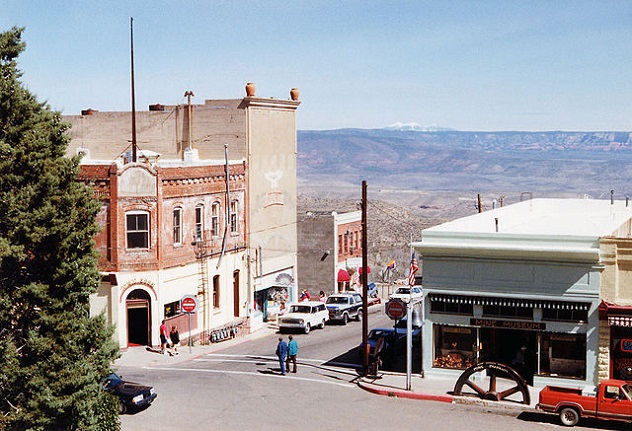
Jerome, Arizona, is a ghost town, but not because it’s been abandoned by the living—because it’s been taken over by the dead. In the late 1800s, Jerome was a copper boomtown, a thriving speck of civilization in the sand-swept hill country of southwestern America. Miners and their families, high on the scent of easy money, poured into the town by the wagonload.
But where rough men gather, the bodies are sure to pile up. It wasn’t long before Jerome was dubbed “The Wickedest Town in America,” a cliche of the lawless American West—gunfights rang through the streets, mining accidents buried men under tons of rubble, and cheap brothels and Chinese opium dens opened up in the seedier areas of town.
Husband’s Alley was the hub of Jerome’s wheel of decadence, and it’s said that the ghostly calls of young girls can still be heard echoing through the empty streets. One ghost in particular that people claim to see is that of Sammie Dean, a prostitute who was strangled in her bed by a customer. She wanders through homes, looking for her killer.
But that’s only the tip of Jerome’s ectoplasmic iceberg. In a nearby mine, “Headless Charlie” haunts the dark tunnels, searching for the head that he lost in a freak accident. An abandoned clinic holds hordes of emaciated ghosts who died of the flu in 1917. Nearly every street and byway in Jerome has its own macabre tale to tell.
5The Ostrich Inn
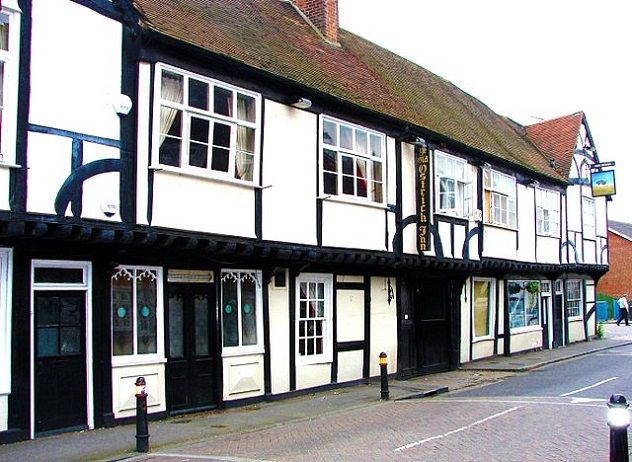
John Jarman had a clever plan. His inn was conveniently situated on Colnbrook’s main thoroughfare, a tempting sight for weary travelers dusty and worn from the long road into London. But not all accommodations were created equal at the Ostrich Inn—for wealthy travelers, a special room was provided directly above the kitchen. Maybe they noticed that the bed was nailed to the floor; maybe they didn’t. Maybe they noticed the room gradually getting warmer. Then again, maybe they were too tired to care.
But when those weary travelers settled in for the night, they got the fright of their lives: At the pull of a lever, the floor would open and the bed would tip over a trapdoor, sending them kicking and screaming into a waiting vat filled with boiling water.
John Jarman allegedly killed over 60 people at the Ostrich Inn in the 17th century. With the help of his wife, he boiled them alive and then stacked the bodies in the cellar. And, of course, that’s where the ghost story begins. The Ostrich Inn is still around, offering the perfect medley of local cuisine with a side of screaming misery and death. Jarman’s impromptu basement morgue is now the ladies’ restroom, and customers claim to feel an unearthly chill when they walk into the room. The inn’s staff has complained of sudden noises, flickering lights, and machinery turning itself on behind locked doors, all of it chalked up to the restless spirits of former tenants.
4Baker Hotel
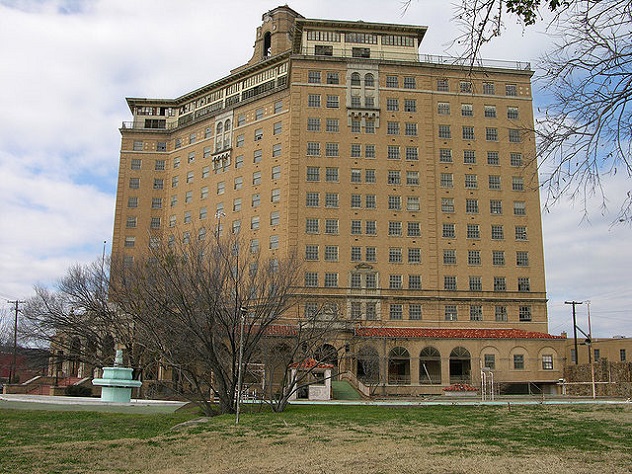
Imagine a derelict hotel, long abandoned, with devil-black corridors leading past line after line of cracked and sagging doors. Sick light filters through the curtained windows. The spacious entrance halls are silent and still but for the fading echoes of your footsteps, and behind you, a little boy’s voice whispers, “It hurts, mommy.”
That’s the Baker Hotel in Mineral Wells, Texas. At least, if you believe the stories. Once an opulent getaway for the rich and famous, hard times forced the Baker to close its doors in 1972. Since then, it’s become something of a local icon, spurred in part by the tales of the ghosts that walk its halls. The usual suspects include a woman in white who took a dive off the hotel’s roof, an aura of “suffering and disease” in several of the rooms, and a weeping old woman in a wheelchair wailing the phrase “I can’t do it” over and over again.
Plans are under way to restore the dying hotel to its former glory, so maybe the specters will calm down a little and just learn to enjoy themselves soon.
329 Hanbury Street
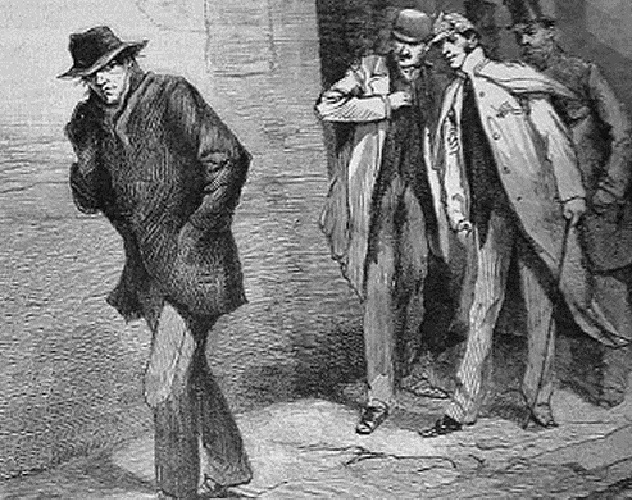
Jack the Ripper’s surgical mutilation spree in the late 1880s drowned London in a sea of terror and created one of the first worldwide media frenzies in history. Of the Ripper’s five generally accepted victims, Annie Chapman was the second. Her body was discovered at 29 Hanbury Street on September 8, 1888, with the head nearly severed and her uterus cut from her abdomen.
The house at 29 Hanbury Street stood until 1970, when the northern half of the street was demolished to make way for a brewery, and that’s when strange things started happening. According to the stories, the headless ghost of Annie Chapman can still be seen wandering around the spot where her body was found, and every year on the anniversary of her death, a cold wind sweeps through the building at precisely 6:00 AM—the time she supposedly took her last breath in the grip of a merciless killer.
2Atsugi Hangar Bay

On August 15, 1945, Emperor Hirohito made a radio broadcast announcing Japan’s surrender to Allied forces, marking the end of World War II in Asia. Fifteen days later, on August 30, General MacArthur arrived at Atsugi Naval Air Facility in Japan to officially accept the surrender. And if the stories can be believed, he had to wade through the bodies of dead kamikaze pilots to do so.
Supposedly, the pilots stationed at Atsugi slipped away to one of the hangar bays and committed mass hara-kiri (ritual suicide) upon hearing the news. Angered by the disgrace the surrender meant to their country, the pilots’ souls stayed to haunt the hangar bay for all eternity. Servicemen have reported seeing red eyes floating in the darkness of the unlit hangar, and doors will slam at all hours of the night, even when there’s nobody around to slam them. According to a similar story, it was the sailors stationed at the base who killed themselves after the pilots took off for one final suicide run.
That’s if you believe the stories. Officially, there’s no mention of anything like that happening at Atsugi Naval Air Facility, although one report claims that the pilots revolted against the Imperial Army after the surrender and took control of the base for seven days before the Imperial Army was able to recapture it. A US newspaper mentions the kamikaze pilots committing hara-kiri at Atsugi, but it’s almost certainly tongue-in-cheek, since that sort of thing was actually happening in other parts of Japan.
1Letchworth Village
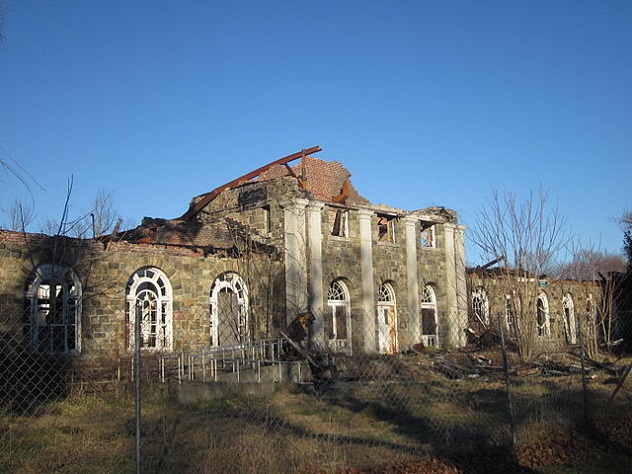
Nobody’s going to deny that an abandoned mental asylum known for raping and abusing its patients is going to be pretty creepy all on its own, supernatural interlopers or not. But Letchworth Village packs a double punch. Built in New York in 1911, Letchworth was considered one of the most prestigious mental healthcare facilities in the country. It was the spot where the first polio vaccine was tested in 1950, a fact which should have nailed it a spot in history all on its own—if the test subject hadn’t been a mentally challenged eight-year-old boy who couldn’t have given consent even if he’d been asked.
As early as the 1920s, rumors were already circulating of the atrocities being committed behind closed doors in the Village. In 1921, almost 1,200 patients, most of them small children, were crammed into the severely overpopulated rooms. That’s the same year the head physician, Dr. Charles Little, announced that he intended to use the patients in medical experiments. By the ’50s, over 4,000 mentally disabled men and women were crowding each other for sleeping space in the hallways. The patients were neglected; many of the women
were abused. A cloud of death began to fall over the diseased grounds.
The Village closed its doors for good in 1996, and since then, reports of ghostly occurrences have made the rounds. Children giggling, desks and chairs scraping across the cracked concrete floors, towers of cardboard boxes simply marked “Deaths”—every visitor reports some unexplained phenomenon at Letchworth Village.
They’re probably not real, but be honest: Would you go in at night?
Eli Nixon is the author of Son of Tesla, an interdimensional tale of love, honor, and one man who will stop at nothing to keep Nikola Tesla from entering our universe.


